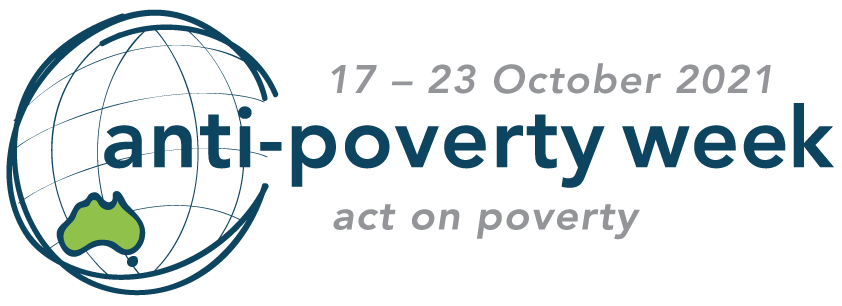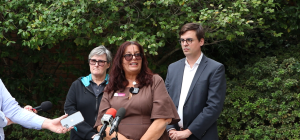One of the key takeaways from the COVID-19 pandemic, and the focus for Anti-Poverty Week 2021, is that poverty can strike families at any time and, when it does, it is often the children who are impacted the most.
State and federal government responses to the COVID-19 crisis have shown that it is, and always has been possible to ensure that families have an adequate income to meet their basic needs, keep a roof over their heads, put food on the table each night and ensure their utilities remain connected.
In WA there are more than 270,000 people living in poverty, including almost 95,000 children.
Anti-Poverty Week WA Co-Chair and Communicare Executive Director Strategy and Growth, David Cain, said the first few years of life set the foundations for lifelong development, which is why child poverty should matter to all of us and why this year’s APW theme is so important.
“Growing up in poverty means young children are systematically isolated from critical social and developmental opportunities. This isolation can have long-term impacts,” Mr Cain said.
“WA is one of the wealthiest societies on the planet, yet there is significant entrenched child poverty here and it continues to grow year on year with the COVID pandemic highlighting service gaps and a lack of system-wide coordination and capacity to reach out to families in crisis.
“Child development experts, children’s advocates and services are all in agreement: we need greater investment targeting those children who are most vulnerable and therefore most likely to miss out on crucial support and a fair start to life.”
WACOSS CEO, Louise Giolitto, said poverty is ultimately a political choice, especially when it comes to children and families.
“Over the last 18 months we have seen governments be bold and decisive, investing our resources to tackle unemployment and loss of income, helping those in crisis and ensuring our communities are supported. In the face of unprecedented danger, we banded together like never before,” Ms Giolitto said.
“More than 1 in 10 Western Australians, including 1 in 5 children, are struggling right now to survive on income support payments such as JobSeeker that puts them below the poverty line.
“Yet, we know that the coronavirus supplement lifted 68,000 Western Australians, including 7,000 children, out of poverty in 2020 in alone. Families reported being able to consistently put good, healthy food on the table and repari essential items, such as their vehicles, for the first time in years.
“It has never been clearer that we need to urgently raise the rate of income support payments for all Australians to ensure that no child or family is forced to live in poverty due to circumstances outside of their control.”
Shelter WA CEO Michelle Mackenzie said there is a critical need to focus on youth homelessness if we want to reduce the high numbers of homelessness and entrenched poverty in future generations.
“Half of all people experiencing homelessness in WA right now were homeless before the age of 18 so the outcomes are really good when we invest in holistic, preventative and early intervention approaches for children and teenagers,” Mc McKenzie said.
“We know that providing affordable housing is the best solution for reducing poverty for children and families and the WA government’s recent record investment of $875 million new funding for social housing is a much-needed boost that will transform lives.
“But, recent trends on homelessness show that there is still a long way to go before we can end homelessness and, ultimately, eliminate poverty here in Western Australia.” Ms Mackenzie concluded.




